BY LINCOLN ANDERSON | Cool! Check out the new pot dispensary! That might be your first thought upon seeing the Empire Cannabis Clubs storefront on the Lower East Side. Though you might also think…How is that possible?
Indeed, it’s not currently legal to sell marijuana like this from a store — nor, for that matter, from vans or from tables in Washington Square Park, either. More to the point, a crackdown surely will be coming soon, an attorney familiar with the issue told The Village Sun.
Empire Cannabis Clubs recently opened a second location in New York City, on Allen Street between Stanton and Rivington Streets. Its first was in Chelsea and there are plans to expand into Brooklyn.
Although recreational marijuana has been legalized in New York, it’s still illegal to sell weed. The plan is for licensed dispensaries to sell pot, which will be taxed, providing revenue for the state. But the dispensaries are not up and running yet, creating a so-called gray area and, in turn, what radical attorney Stanley Cohen calls “the gray market.”
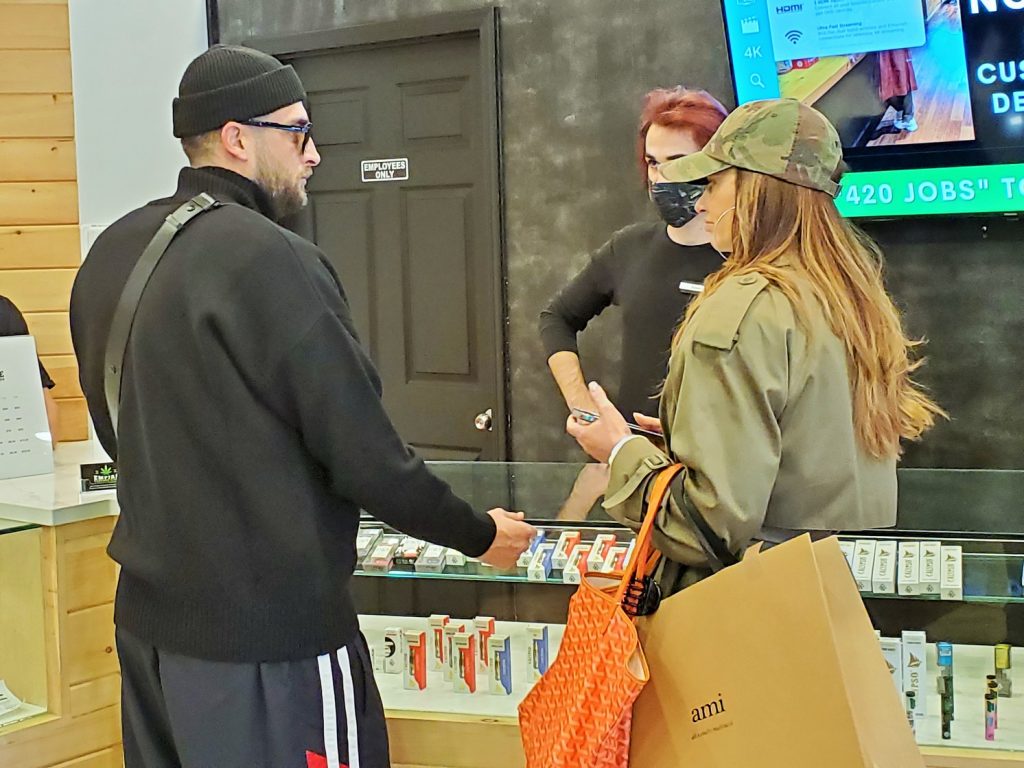
Empire Cannabis Clubs claims to get around the legality issue by instead selling club “memberships” that entitle members to obtain pot at its outlets.
The Allen Street storefront was formerly home to Bluestockings, the feminist, radical bookstore, which closed in July 2020 and reopened nearby on Suffolk Street.
Inside the Lower East Side location, the counters are manned by friendly “budtenders.” Club members and prospective members are buzzed in and out through a locked front door.
Empire Cannabis Clubs bills itself as a “concierge collective” and, going even further, as New York’s “first dispensary.” Workers at the Lower East Side store and the company’s Web site maintain the business model is perfectly legal. A budtender at Allen Street referred further questions about this claim to the e-mail address listed on the shop’s business card, an e-mailed query to which, though, went unanswered. An e-mailed question to New York State’s Office of Cannabis Mangement asking about the cannabis club’s legality also went unanswered.
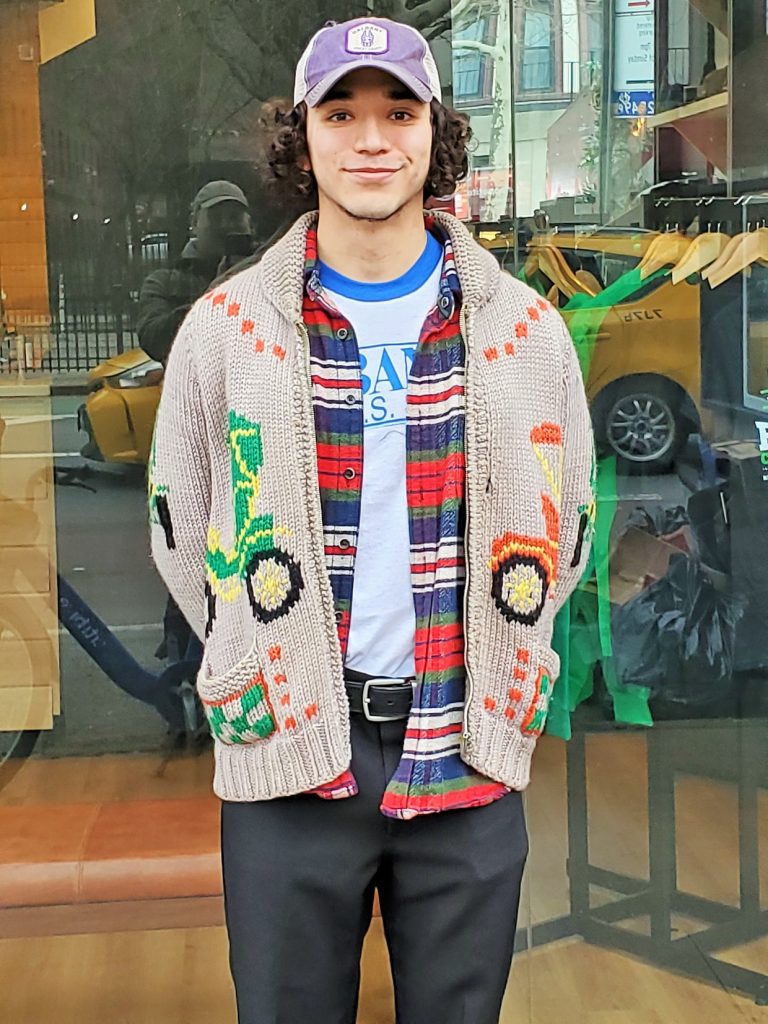
Meanwhile, Mathew Lee, an Upstate college student from Staten Island, gave the Allen Street Empire Cannabis Clubs a try a couple of weekends ago and had no complaints. He emerged from the place with “flower” (buds) and pre-rolled joints. An Instagram ad for the store had piqued his interest.
However, a female companion with Lee was adamant about not giving her name, noting, “I’m going into law school!”
Speaking of the law, attorney Cohen, who represented East Village squatters back in the 1980s and ’90s, scoffed that the cannabis club approach is “too cute by half.” He currently happens to be representing clients who are looking to get dispensary licenses.
“These clubs have an enormous problem, even though the current criminal exposure is negligible,” he said.
For starters, he noted, the way New York’s law legalizing pot — the 2021 Marihuana Regulation and Taxation Act, or MRTA — has been set up, 50 percent of licenses will be allocated to communities that have been excessively impacted by previous marijuana enforcement, including low-income communities of color and, specifically, individuals who have been convicted of pot-related offenses.
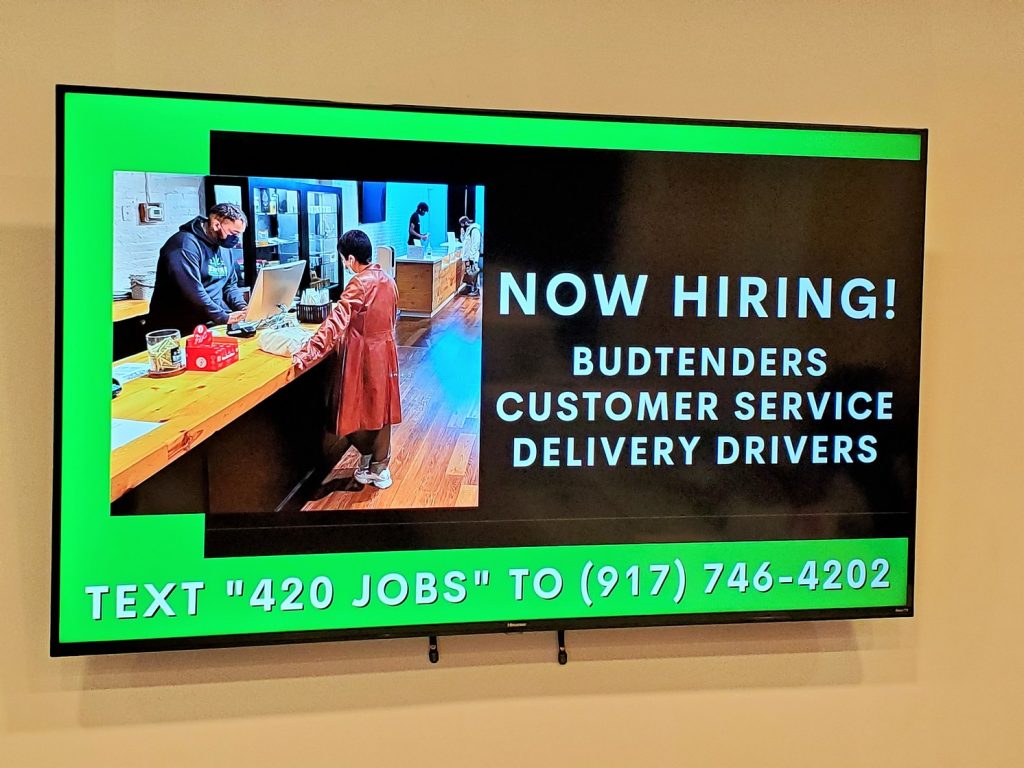
Beyond that, he assured, civil enforcement — culminating in seizure of assets — will start soon against the gray market, though adding it’s not something he personally endorses.
“Initially, there will be very heavy civil fines — $25,000 to $250,000,” he explained, “then forfeiture of cars, houses and other licenses. You need licenses to open a store in New York.
“It might not be for six months or a year, but it’s going to happen,” Cohen predicted. “They’re serious about this s—.
“That kind of cuteness does not work to escape civil forfeiture,” he said of the cannabis clubs. “If New York is going to have credible licenses for retail and [pot] growth, they’re going to have to deal with the competition.”
The attorney noted California tried to address this gray-market dynamic by subsidizing its legal dispensaries, yet didn’t dent the flood of illegal weed selling, making the Golden State now consider a different tack.
“The big mayhem is going to be civil [forfeiture],” he said. “If someone owns a cannabis club and they own three cars and have a f—in’ home on Long Island or property up in Woodstock, New York’s going to go after that s—.”
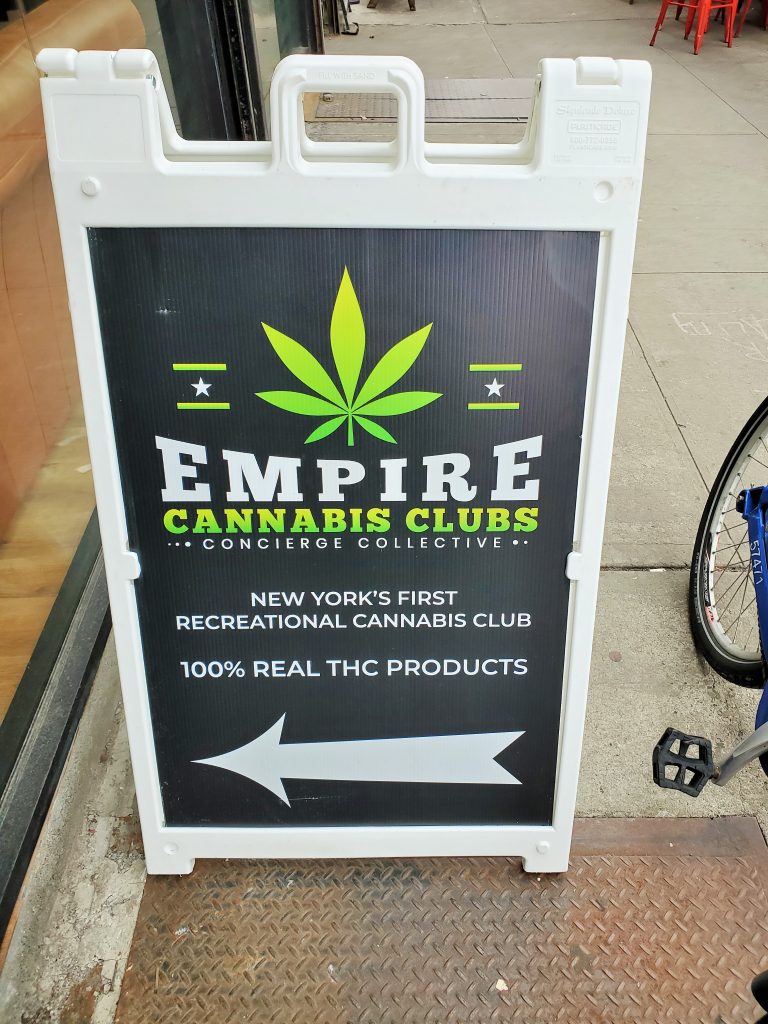
Cohen said one small-time pot outdoor vendor recently called him for legal advice, saying, “All I have is a table.” But the attorney said that’s no protection, either, and that regulators will find ways to hit even the smallest of sellers.
“They’re gonna move to take old cars,” he said. “They would make it hard to rent [an apartment].”
The idea that already-existing pot stores or clubs could somehow “slip in” and be legalized as dispensaries won’t happen either, he explained.
“In New York State, under the [legalization] act, anyone operating without a license is automatically ineligible for a license once they open their doors,” he noted.
Cohen stressed that the state has taken very clear steps — such as moving marijuana from under the state Department of Health’s jurisdiction into the newly created Office of Cannabis Management — that show its seriousness on the issue.
In short, he said, New York State did not work this hard to set up a system for legalized weed sales only now to allow it to be cut into by gray-market entrepreneurs.
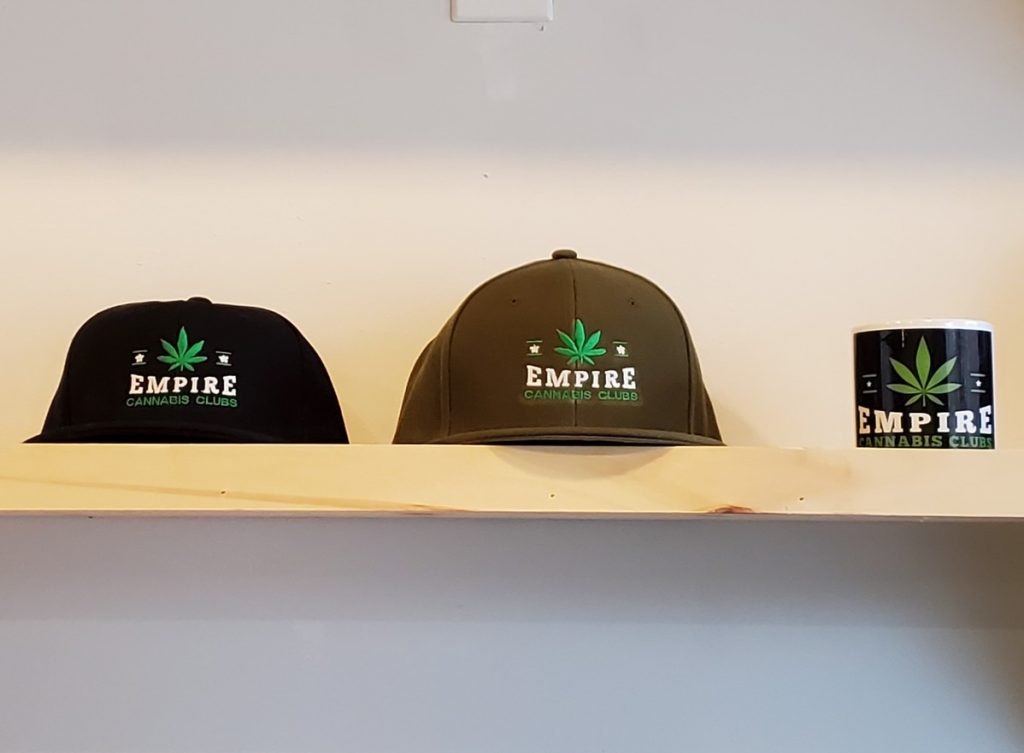
One criticism of other states’ social-justice efforts to set up dispensaries in impacted communities has been that the license recipients sometimes can be undercapitalized. As a result, lacking, say, the needed $100,000 to open a dispensary, they might instead just “flip” their licenses by selling them to more well-funded groups. But Cohen said that won’t be the case in New York because “seed money” will be included with the licenses handed out to these recipients.
“So,” he said, “there’s not going to be the need to be a f—in’ ghost operation for f—in’ white boys from Nassau [County].”
Cohen said he firmly endorses the social-justice model of allocating dispensary licenses.
“When you look at the percentage of people from the Lower East Side that have gone to prison for pot offenses versus the Upper East Side, Upper West Side or even Greenwich Village, it’s staggering,” he said.
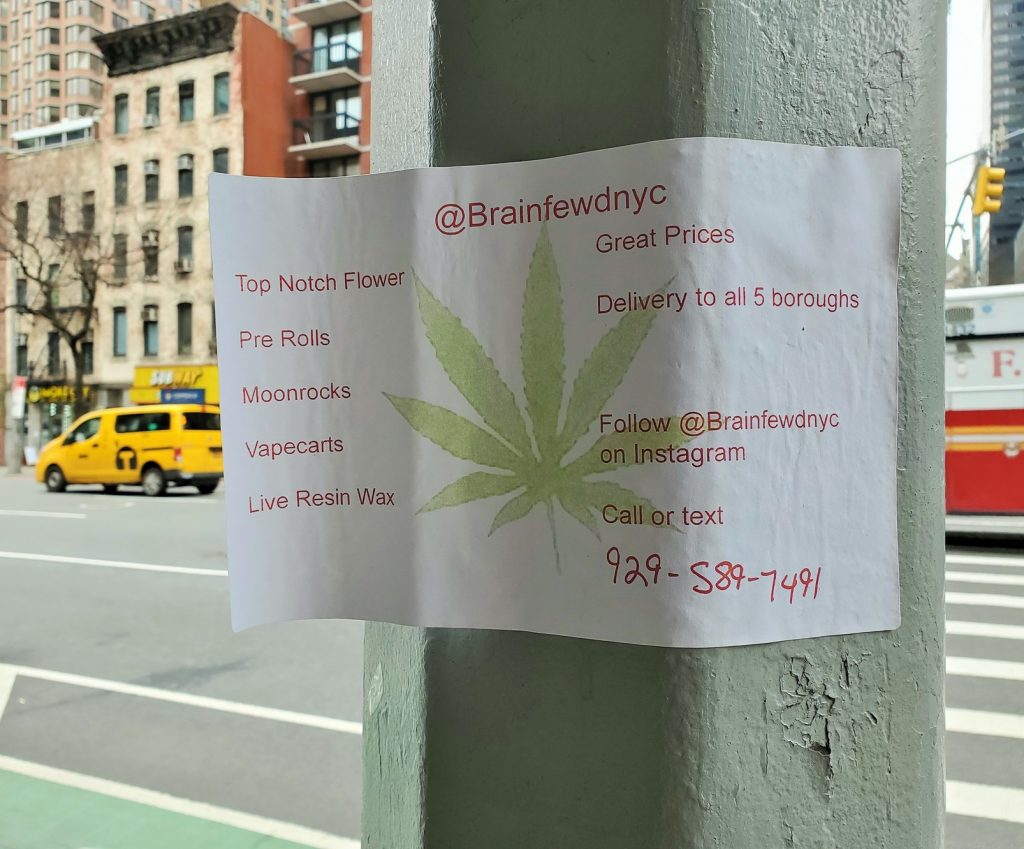
And it won’t just be the state keeping an eye on illegal sales, the attorney added.
“If I’m some local kid from Loisaida and I see some f—in’ white boys opening a f—in’ place on Eighth Street beetween C and D, you don’t think I won’t lose my s—?
“I get it, it’s sort of like the Al Capone speakeasy of cannabis,” Cohen shrugged of so-called pot clubs. “But there’s no real money to be made because it’s legal to sit out on the street and have an ounce of pot. I can go to one of 200 people that I know and buy the best pot and sit down on a bench and smoke a joint and laugh at the cop.”
At any rate, in the meantime, at least, club members can enjoy their perks and puffs while they last.
But of cannabis clubs and the ganja gray market, in general, the attorney predicted, “It’s gonna be short-lived.”

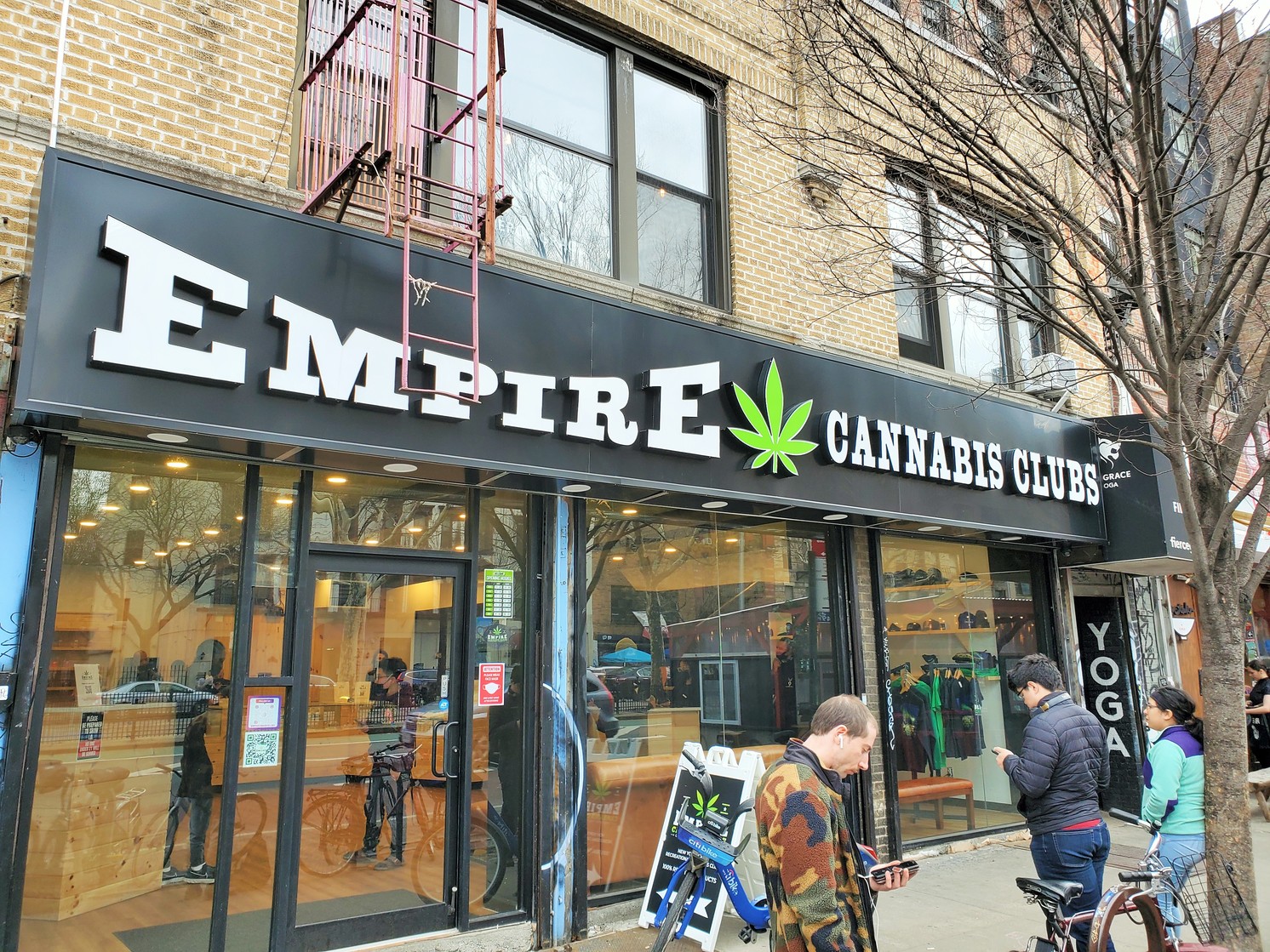
Communities of color have been devastated in New York for generations by disproportionate arrest, prosecution and imprisonment for marihuana offenses. The same communities have the highest unemployment rates and are being displaced, with families torn apart by explosive rents and warehousing of public housing. This bill was fought for and obtained specifically to address this race-and-poverty inequality. I really can’t lose sleep over Navana from Sag Harbor for once going to the back of the bus.
This is Jonathan Elfand of Empire Cannabis Clubs, and a little brief on the comments given by Mr. Cohen: 1) The actions taken by myself and partners to secure our place in the distribution of cannabis in the NYC venue is because the legislation put forth by every state to allow citizens whom the drug war physically affected to be involved in the cannabis industry has been reprehensible, and because NYS is conducting itself in the same manner. 2) All the hogwash the governor and cannabis board have been spewing as to the protections they were setting forth to secure those members’ rights in that industry will be shortly displayed as to why it is all lies protecting big corporate’s dollars. 3) Civil forfeiture, fines, blah, blah, blah, are all avenues allowed under law to stop someone from violating the law, but if you had taken the time to do a thorough legal analysis instead of just chasing the money trying to represent individuals for whom getting a license needs no legal representation, maybe you would have seen how legal my business structure is.
Let me be clear, we at Empire Cannabis Clubs are those who were directly adversely affected by the criminalization of a truly therapeutic plant. We have spent years creating new case law and doing time specifically because we believe in this substance. We are standing here, head held high to stop big corporate and everyone else who fostered the negative imagery of this beautiful and wonderful plant from now profiting from its new image.
Lastly, I am available to discuss why my clubs are running well within the law, here to discuss and assist in all battles to secure the control of the cannabis industry and put it into the hands of social-equity and legacy businesses, and finally to sit with a respected counselor for social-injustice issues, like Mr. Cohen, and smoke some fantastic/magical/spiritual weed.
The bottom line is this…..The State of NY legalized it so they could collect TAXES on it. If you are operating without their approval and not paying taxes they are gonna shut you down. If there ever was a time that the State of New York needed more tax money it is now and all those who are selling and not paying taxes are actually cheating all citizens who live in NY State.
Can you structure a business the same way and sell alcohol without a license? The state isn’t going to be moved by your arguments. Once the legal structure is in place to create a legal market the rest will get swept up and the gray market will go back to knowing a guy who might deliver for you.
Funny, you need a license to sell pot or even to sell hot dogs in NY.
It’s OK to just walk into a store and buy a gun, almost anywhere.
Talk about “CUTE”!